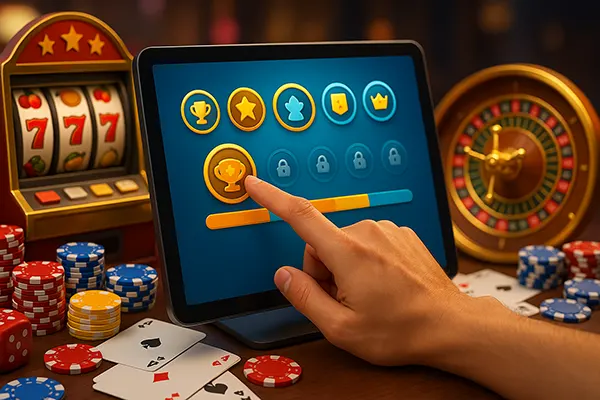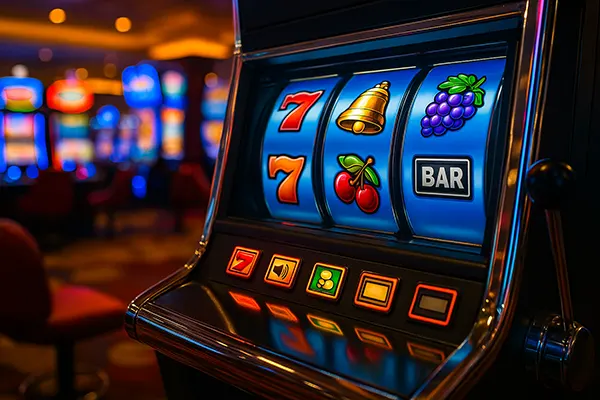Psychology of Tilt Control in Poker: How to Avoid Emotion-Driven Mistakes

Poker is a game of skill, strategy, and emotional control. While mathematical calculations and logical thinking play a huge role in long-term success, the mental state of a player can drastically alter the outcome of individual hands or even entire sessions. One of the most common psychological challenges players face is “tilt” — an emotional reaction that disrupts rational decision-making. Understanding tilt and learning how to manage it is crucial for anyone seeking consistent results at the poker table.
What is Tilt and Why It Happens
Tilt is a psychological state in which a player lets emotions override logic and discipline. Typically, this state is triggered by bad beats, unexpected losses, or prolonged periods of frustration. Tilt often results in irrational decisions — such as bluffing without a plan, calling too many hands, or increasing stakes aggressively to recover losses.
The root causes of tilt vary. Some players are more prone to anger or disappointment due to their personality traits or past experiences. Others may suffer from fatigue or stress, making them more susceptible to emotional reactions. Regardless of the cause, tilt reduces a player’s ability to focus, think clearly, and make mathematically sound decisions.
Recognising tilt in the early stages is essential. Physical signs include tension in the jaw, restlessness, or a racing heart. Mentally, players may feel overwhelmed, irritable, or obsessed with “getting back” at opponents. These red flags should prompt immediate action to avoid further damage.
Consequences of Playing on Tilt
Playing while tilted rarely leads to positive outcomes. Emotion-driven mistakes not only lead to financial losses but can also damage a player’s confidence and reputation. Tilt often spirals, with players making more mistakes as they chase losses or attempt to “punish” opponents.
Long-term exposure to tilt without effective management strategies can also lead to burnout. Many talented players leave poker altogether due to repeated emotional setbacks. Moreover, consistent tilting can distort one’s self-perception, causing a skilled player to view themselves as unlucky or incompetent.
In competitive environments such as live tournaments or high-stakes cash games, tilt can be exploited by observant opponents. Recognising a player on tilt allows others to apply pressure, force mistakes, and build stacks at their expense. Thus, emotional control becomes not only a personal asset but a defensive mechanism against manipulation.
Strategies to Prevent and Manage Tilt
Preventing tilt starts with preparation. Adequate sleep, a healthy lifestyle, and regular breaks improve emotional resilience. Many professionals also use mindfulness practices, such as meditation or breathing exercises, to maintain calmness during stressful moments at the table.
Another effective method is having a clear stop-loss policy. By deciding in advance how much money or how many hands you’re willing to play, you prevent emotionally charged decisions from escalating. A written poker journal can also help players track their mental state and analyse behavioural patterns after each session.
When signs of tilt appear, taking a break is often the best course of action. Whether it’s a five-minute walk or ending the session early, stepping away from the table helps restore emotional balance. It’s also wise to avoid discussing bad beats or seeking validation from peers during tilt — this often reinforces negative thinking.
Training Emotional Discipline
Like any skill, emotional discipline can be developed through practice and repetition. Simulated poker scenarios that test patience and self-control are commonly used in training routines. Players can also benefit from mental coaching, which focuses on managing expectations, visualisation, and goal-setting.
Identifying emotional triggers is another key part of training. Players should reflect on what typically causes their tilt — whether it’s a specific opponent, type of hand, or pressure to win. Understanding these triggers helps build strategies for diffusing them in real-time.
Finally, surrounding oneself with a supportive community can greatly impact mental stability. Trusted peers or coaches can offer perspective, challenge distorted thinking, and provide accountability. A player who feels supported is more likely to handle setbacks with composure and move forward constructively.

The Role of Mindset in Long-Term Poker Success
Mindset is arguably more important than talent in poker. While technical knowledge helps in individual hands, it’s the emotional fortitude that determines success across thousands of sessions. Consistency, patience, and a learning-oriented approach are all products of a resilient mindset.
Players with a strong mindset see mistakes as opportunities for growth. Rather than blaming luck or opponents, they focus on what they can control — their strategy, reactions, and preparation. This shift in perspective reduces frustration and prevents self-destructive patterns from forming.
Furthermore, a positive mindset fosters sustainable habits. It encourages healthy bankroll management, study routines, and balance between poker and personal life. In contrast, players who rely solely on emotion tend to experience boom-and-bust cycles, making it harder to build long-term success.
Building a Winning Mental Framework
Developing a winning mindset begins with self-awareness. Players must be honest about their weaknesses, emotional tendencies, and coping mechanisms. This introspection allows them to make targeted changes rather than relying on generic advice.
Next, setting realistic goals keeps motivation high without inviting pressure. These goals should be process-focused (e.g. study two hours daily, review hand history weekly) rather than outcome-focused (e.g. win $1,000 this month). Process goals build consistency and reduce the emotional volatility tied to short-term results.
Lastly, celebrating small wins builds confidence. Recognising improvements in tilt control, emotional regulation, or decision quality reinforces positive habits. Over time, this mindset creates a stable foundation that supports peak performance — both at the tables and beyond.




